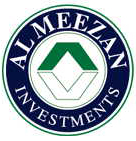P&O’s owner has hired Deutsche Bank and Shuaa Capital, a Dubai-based investment house, to consider a partial float or refinancing, just over a year after buying the British ferries and ports group.
It is understood that DP World, the world’s third-largest ports group, is keen to reach a decision by the autumn.
In the event of a partial float, the Dubai Government would retain control of the group, selling a minority stake. Under such a scenario, it is thought that DP World would be seeking to raise around £1 billion from the float.
DP World owns 42 ports worldwide. It is wholly owned by the Dubai Government and is one of many key Dubai industries controlled by Sheikh Mohammed bin Rashid al-Maktoum, the Ruler of Dubai.
Last year, DP World shelved plans for a London float after being spooked by volatile market conditions — such a float would have valued the group at about £6 billion. It had appointed Merrill Lynch and Deutsche Bank to handle the sale. It was thought that DP World was planning to sell 20 per cent of the group.
Any new partial flotation of the company would probably involve some of the shares being listed on the new Dubai International Financial Exchange (DIFX). Yet it is not known whether the banks are reconsidering a London listing.
DP World bought P&O for £3.9 billion in February last year. It funded the deal with about £2 billion in bank loans from Deutsche Bank and Barclays Capital and another £1.9 billion from the sale of a Sukuk Islamic bond.
Holders of the Sukuk bond get first refusal to buy shares in a float of DP World within the first two years of the life of the bond. That deadline expires in November this year.
Banking sources close to DP World insisted that the company can meet its existing debt obligations easily — in part because of the boom in shipping, but also because the group was forced to sell P&O’s American business, for which it raised around $1 billion.
Washington had threatened to block the sale of P&O to DP World if it failed to sell the six ports in the United States that it inherited from the deal to a US company. It cited security concerns over the ports being controlled by a company based in the United Arab Emirates. Banking sources indicated that DP World’s refinancing options could include paying back some of the original debt, buying back the Sukuk bonds, issuing another Sukuk two-year bond or selling a Eurobond.
One new concern for a partial float of DP World in Dubai will be local market conditions. The Dubai stock market is recovering from a sharp correction last year. In 2006, stock markets across the Gulf CoOperation Council — the Arab Gulf trade bloc that includes Bahrain, Kuwait, Oman, Qatar, Saudi Arabia and the United Arab Emirates — halved within months.
The stock market overheated after banks extended large amounts of credit to retail investors to buy shares in newly floated companies. In some cases, new flotations were more than 300 times oversubscribed.
Shuaa Capital, Deutsche Bank and DP World all declined to comment
|









